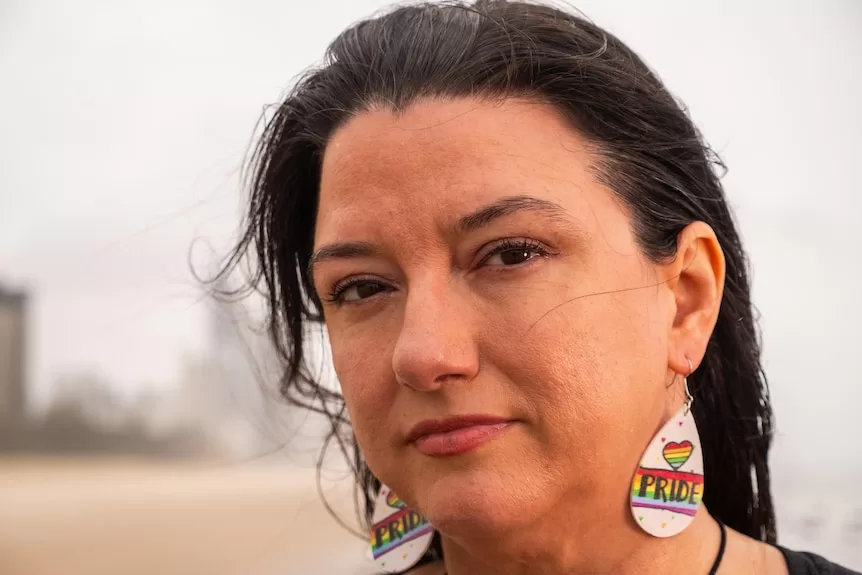Walking past glittering skyscrapers and nightclubs blasting thumping music, Natalie O’Driscoll can’t help but feel lonely.
The queer woman lives on the Gold Coast, Australia’s sixth largest city and one of the fastest growing regions in the nation.
It’s known for its vibrant and active culture and there are people everywhere – more than 640,000 of them.
But Ms O’Driscoll can’t seem to find her people.
“I’m dating and on an app for women and basically everybody that I connect with is from Brisbane, there are just so few queer people here,” she says.
The 45-year-old has resorted to expanding the location range on the app she uses, but she would prefer to meet a potential partner or queer friend in person.
She says LGBTQI+ groups and events are few and far between on the Gold Coast.
“We’re just really behind other major cities,” Ms O’Driscoll says.
“It’s bizarre that there would be smaller cities out there that have a bigger gay scene than us, but the Gold Coast is very conservative.
“It’s really lonely, it’s isolating, and it makes you feel like the other, more than you would in a bigger city where you have more options.”
‘Under the radar’
Like Ms O’Driscoll, Danni Zuvela moved to the Gold Coast for its sun and sand.
She said she had watched on as fellow queer community members tried to “mask” their sexuality in public situations.
That was one of the reasons Ms Zuvela co-founded the Gold Coast’s annual Pride festival four years ago.
“A lot of us are single, most of us don’t have partners or families that support us,” she said.
“So having a place you can go to on your own, it’s super important.”
Her not-for-profit organisation is championing the cause by celebrating the city’s LGBTQI+ community and pushing to make the Gold Coast a more inclusive place.
“When most people get the chance to meet somebody who challenges what they thought they hated, they often change their mind,” Ms Zuvela said.
The Gold Coast has billed itself as a global city and has hosted events such as the Commonwealth Games.
But Ms Zuvela said members of the queer community reported instances of homophobia to her on a weekly basis.
“I’ve noticed that most of us fly a bit more under the radar here,” she said.
The Queensland Human Rights Commission (QHRC) has received 230 complaints of discrimination or vilification based on someone’s sexuality in the past five years.
A handful of those came from the Gold Coast and the majority were from Brisbane.
But the QHRC warned that formal complaint numbers were not a true indication of the reality of homophobia on the ground.
It said that was because victims of assault or harassment rarely knew the identity of the perpetrator.
‘Really felt the lack’
Nerida Groth was enveloped by the Sydney’s strong queer community and culture during her formative years.
“It was a great experience growing up in that environment and after moving to the Gold Coast I really felt the lack of that up here,” she said.
Ms Groth has called the Gold Coast home since 2018 and last year she created Goldy’s, a pop-up queer disco featuring local LGBTQI+ artists and performers.
“We’re not born into this community,” she said.
“It’s something we come to later in life and it’s important we can seek that community out when we need it.”
Ms O’Driscoll hopes Goldy’s and the Pride festival will spark new friendships and connections in her adopted hometown.
“Being queer often comes with a whole traumatic history of rejection, disowning and feeling disenfranchised,” she said.
“To then move somewhere that’s affirming that through the lack of community can be pretty depressing.”
ABCQueer
A monthly newsletter for LGBTQIA+ folks and their allies, with stories about real people and their experiences of being queer.
